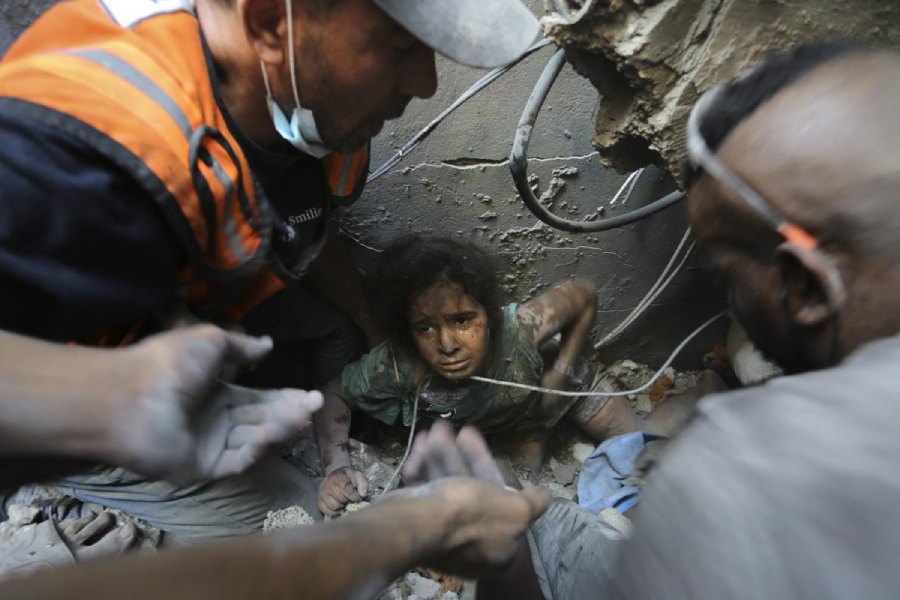Fears that Israel’s expanding military operations in the Gaza Strip could escalate into a regional conflict are clouding the global economy’s outlook, threatening to dampen growth and reignite a rise in energy and food prices.
Rich and poor nations were just beginning to catch their breath after a three-year string of economic shocks that included the Covid-19 pandemic and Russia’s invasion of Ukraine. Stinging inflation has been dropping, oil prices have stabilised and predicted recessions have been avoided.
Now, some leading international financial institutions and private investors warn that the fragile recovery could turn bad. “This is the first time that we’ve had two energy shocks at the same time,” said Indermit Gill, chief economist at the World Bank, referring to the impact of the wars in Ukraine and West Asia on oil and fuel prices.
Those price increases not only chip away at the buying power of families and companies but also push up the cost of food production, adding to high levels of food insecurity, particularly in developing countries such as Egypt, Pakistan and Sri Lanka.
As it is, nations are already struggling with unusually high levels of debt, limp private investment and the slowest recovery in trade in five decades, making it tougher for them to grow their way out of the crisis. Higher interest rates have made it more difficult for governments and private companies to get access to credit and stave off default.
“All of these things are happening all at the same time,” Gill said. “We are in one of the most fragile junctures for the world economy.”
Gill’s assessment echoes those of other analysts. Jamie Dimon, CEO of JPMorgan Chase, said last month that “this may be the most dangerous time the world has seen in decades,” and described the conflict in Gaza as “the highest and most important thing for the western world”.
The recent economic troubles have been fuelled by deepening geopolitical conflicts that span continents. Tensions between the US and China over technology transfers and security only complicate efforts to work together on other problems such as climate change, debt relief or violent regional conflicts.
The overriding political preoccupations also mean that traditional monetary and fiscal tools such as adjusting interest rates or government spending may be less effective.
The brutal fighting between Israel and Hamas has already taken the lives of thousands of civilians and inflicted wrenching misery on both sides. If the conflict stays contained, though, the ripple effects on the world economy are likely to remain limited, most analysts agree.
New York Times News Service











